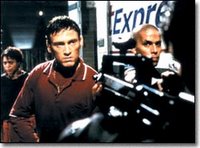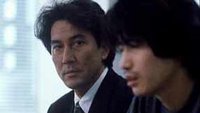
2000, Spain, directed by Achero Mañas
Spain's contemporary film production is so dominated, in English-speaking countries at least, by Pedro Almodóvar that it's refreshing to come across a film that eschews his sometimes melodramatic stylings and embraces the gritty realities of a Madrid neighborhood. El Bola (Pellet) is a kid with a rough home life whose friendship with a new kid, Alfredo, seems to offer a form of escape; his friend's unconventional father is especially appealing in comparison to his own authoritarian dad. Although the contrasts between the two homes are occasionally drawn a little too sharply, there's a powerfully humanist impulse behind director Achero Mañas's storytelling, dignifying more than one marginalized character in a manner reminiscent of Benito Zambrano's beautiful 1999 feature Solas. Like that film, El Bola is generally clear-eyed in its view of humanity, steering clear of sentiment while finding a surprising beauty in the small events of everyday life; there's also a powerful critique of the frustrations of ordinary people in their dealings with the irrational workings of officialdom. The performances throughout are excellent: the two young actors who play El Bola and Alfredo are wonderfully natural, and free of the trappings of onscreen cuteness, while Alberto Jiménez is outstanding as Alfredo's father, a part that in less capable hands might well have strained credibility.










